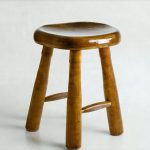The human body is an incredibly complex system, constantly responding to both physical and emotional stimuli. Often, we focus on the tangible – what we eat, how much we sleep, the exercise we get – as determinants of our well-being. But beneath the surface lies a profound interconnectedness between our emotional state and our physiological functions. Many people report experiencing unexpected changes in bowel habits—specifically loose stools or diarrhea—following periods of intense emotional release, whether through therapy, deeply felt conversations, creative expression, or even simply allowing themselves to truly feel difficult emotions. This isn’t necessarily a sign of illness; it’s frequently an indication that the body is actively processing and releasing pent-up emotional energy.
These experiences are rarely discussed openly, often leading individuals to feel confused, worried, or even ashamed. The link between emotion and gut function is far more substantial than many realize, rooted in what’s known as the “gut-brain axis.” This bidirectional communication pathway means our emotions heavily influence our digestive system, and conversely, the state of our gut impacts our emotional well-being. Understanding this connection can demystify these reactions and frame them not as something to fear, but potentially as a natural part of the healing process. It’s about recognizing that intense emotional work can have very real physical manifestations, and that acknowledging those manifestations is crucial for holistic health. You might find more information on how excess fresh juicing https://vitagastro.com/loose-bowel-days-caused-by-excess-fresh-juicing/ can impact digestion as well.
The Gut-Brain Axis: A Two-Way Street
The gut-brain axis isn’t just a metaphorical concept; it’s a well-established physiological pathway involving complex neurological, hormonal, and immunological signaling. Think of it as a superhighway connecting your brain to your digestive system. This connection is so strong that the gut is sometimes referred to as “the second brain.” The vagus nerve, a major component of this axis, directly links the brainstem to many internal organs, including the gut. When we experience stress or intense emotions, signals travel along the vagus nerve influencing gut motility (how quickly food moves through your digestive tract), intestinal permeability (“leaky gut”), and even the composition of our gut microbiome – the trillions of bacteria residing in our intestines.
- Increased emotional arousal can lead to increased cortisol levels, a stress hormone that directly impacts gut function.
- The microbiome itself produces neurotransmitters like serotonin (often called the “happiness hormone”) which influence mood and are heavily impacted by emotional state.
- Changes in gut bacteria have been linked to anxiety, depression, and other mental health conditions, demonstrating the profound interplay between physical and emotional well-being.
Therefore, a significant emotional release can trigger a cascade of physiological events within the gut. The body may attempt to “clear out” not just the emotional weight but also any associated energetic blockages or accumulated stress manifested physically in the digestive system. This isn’t always comfortable—in fact, it often manifests as physical symptoms—but it’s generally a sign that something is shifting and releasing. It’s important to differentiate this from diarrhea caused by infection or food poisoning; the key difference lies in the context – a clear emotional trigger preceding the bowel changes. If poor food combining https://vitagastro.com/loose-bowel-days-triggered-by-poor-food-combining/ is a factor, it can exacerbate the issue.
Why Loose Bowels? Understanding the Physiological Response
When we suppress emotions for extended periods, they don’t simply disappear. They become stored within the body as physical tension and energetic blockages. These can manifest as chronic muscle tightness, digestive issues, fatigue, or a host of other symptoms. Intense emotional release allows us to finally access and process these held-on feelings. The physiological response accompanying this often involves:
- Activation of the autonomic nervous system – specifically the sympathetic (fight-or-flight) and parasympathetic (rest-and-digest) branches. This can lead to increased gut motility, potentially resulting in loose stools.
- Increased blood flow to the digestive system as the body prepares for release and processing.
- Release of hormones like cortisol and adrenaline, which further influence gut function.
The speed at which these changes occur can also contribute to the experience. A sudden, intense emotional breakthrough may overwhelm the digestive system’s capacity to regulate itself, leading to a rapid shift in bowel habits. It’s similar to how your heart rate increases during exercise – it’s a natural physiological response to increased activity, even if that “activity” is emotional processing. It’s also worth noting that many people who have experienced trauma or chronic stress often have a more sensitive digestive system and may be more prone to these types of reactions. This isn’t weakness; it’s a consequence of prolonged adaptation. Understanding how poor sleep hygiene https://vitagastro.com/loose-bowel-activity-caused-by-poor-sleep-hygiene/ can affect your system is also crucial.
Addressing the Fear & Shame
A common response to experiencing loose bowels after emotional release is fear and shame. Many people worry about underlying medical conditions or feel embarrassed by their bodies’ reaction. This can lead to further suppression of emotions, creating a vicious cycle. It’s crucial to reframe this experience as a natural part of the healing process, not something to be ashamed of.
- Remind yourself that your body is responding appropriately to intense emotional work.
- Recognize that everyone experiences physical manifestations of emotion differently; there’s no “right” way to feel or react.
- Practice self-compassion and allow yourself space and time to process both the emotions and the physical sensations.
Hydration, Rest & Gentle Nutrition
While these bowel changes are generally harmless, it’s important to support your body during this period. Dehydration can worsen symptoms and impede the healing process. Focus on:
- Drinking plenty of water throughout the day.
- Getting adequate rest to allow your nervous system to recover.
- Consuming easily digestible foods – think broth-based soups, steamed vegetables, and plain rice or toast. Avoid heavy, greasy, or spicy foods that can further irritate the digestive system.
- Consider incorporating probiotic-rich foods (like yogurt or kefir) to support gut health, but only if tolerated. Emotional exhaustion can also cause loose stool days https://vitagastro.com/loose-stool-days-triggered-by-emotional-exhaustion/.
Seeking Support & Professional Guidance
If you’re struggling with intense emotional releases accompanied by significant physical symptoms, it’s important to seek support. This could involve:
- Talking to a therapist or counselor who specializes in trauma-informed care.
- Practicing mindfulness or meditation techniques to help regulate your nervous system.
- Consulting with a healthcare professional (doctor) to rule out any underlying medical conditions and to discuss your concerns, particularly if the symptoms are severe or persistent. It’s essential to emphasize that this isn’t about diagnosing illness but ensuring comprehensive care. Remember, experiencing loose bowels after emotional release is often a sign of progress, not something to be feared. It’s an opportunity to deepen your understanding of yourself and cultivate a more compassionate relationship with your body. Also consider if frequent reheating https://vitagastro.com/loose-stools-caused-by-frequent-reheating-of-leftovers/ might be contributing to digestive issues, and finally, remember that emotional eating days https://vitagastro.com/stool-disruption-triggered-by-emotional-eating-days/ can impact gut health as well.


















